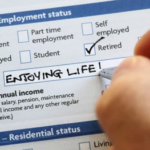The indictment is a formal accusation to a person who may or may not has committed a crime. It leads to an arrest warrant, which means, police or courts have taken some serious action for you. It indicates the beginning of a criminal case.
If I indicted, does that mean I’m guilty? If you’re facing an indictment, it does not represent or proves that you have committed a crime. Majorly charges mean that there was some probable cause to bind to that crime.
Let’s know what do we mean by indictments and the next phases after the grand jury issues them.
What is the difference between a criminal complaint and an indictment?
Contents
Both the indictment and the complaint are court arguments that initiate a criminal case against someone. The difference between them focuses on how they started. An arrest alone is not a sign of the beginning of a criminal case, in fact, arrests may not occur until much later in the process.
Usually, however, the police forward an arrest report to the prosecutor (A prosecutor is a legal representative), and the public prosecutor chooses whether to follow felonious charges.
A prosecutor can usually do this in one of two ways, depending on the state’s laws. In some states or the federal system, the law requires prosecutors to present charges in the grand jury system, and those charges take the form of prosecutions. In other states, the prosecutor directly files a criminal complaint against the defendant.
The related law determines which option the prosecutor should use. However, in many places, the prosecutor can choose whether to file a complaint or go before a grand jury to pursue offensiveness.
What proof is needed to receive an indictment?
To receive an indictment, the prosecutor must present evidence to a grand jury, a panel of citizens selected for duty, like a trial jury. The grand jury proceeding is a secret and unilateral situation, in which only prosecutors present evidence.
The grand jury reviews the evidence to determine whether it is likely that the accused committed the crime. If a majority (or the required number) of grand jury agrees, then a probable cause exists, it votes to indicate.
If this evidence decides that it does not support the allegations, then there are no indictment results and no charges filed.
Is an indictment being the same as a conviction?
Sometimes people confuse an indictment with a conviction. While both are important to know, but they are different. The accusation from a grand jury occurs at the beginning of a case and indicates that the defendant is facing criminal charges.
The grand jury must find that the defendant committed the crime. On the other hand, convection occurs at the end of a criminal case, and a defendant is convicted by entreating guilty or informed guilty by a jury.
For a jury to find someone guilty, they would have to solidly decide that the defendant had committed the crime beyond a reasonable doubt, a higher standard of evidence than the probable cause standard for a crime to accuse someone practices by the jury.
After the grand jury indicts someone, what is next?
The indictment contains information on criminal charges against a person. After a grand jury indicts a person, it proceeds an accusation in court, and a criminal case begins. If the suspect (now-defendant) is not already in custody, the defendant may be arrested or summoned to appear in court for an initial hearing.
The case will then proceed to trial within a specified time frame, depending on the jurisdiction. In federal court, the period is 70 days, but states have different time limits.
The trial must be within the time limit until the defendant chooses to waive his right to a speedy trial or accept a harmonious deal.
Have a conversation with your lawyer
If you face charges based on a grand jury indictment, it is essential to talk to a criminal defense lawyer about your rights and criminal procedure as soon as possible. Decisions made at the beginning of the process can significantly impact the result of the case.
Please note that we are not licensed lawyers/consultants and are not sponsored by anybody. We have no ties with any person/courts/police or any firm or lawyer consultant firm.
However, this article’s information is on my personal student life experiences, own opinions, views, and research. Please do your research before making any decisions.
You may go to any advocate to confirm or get the latest updates of the scenario, and if you think our article contains any wrong or misleading information, please comment or contact us immediately because we don’t want to misuse the user rights.



